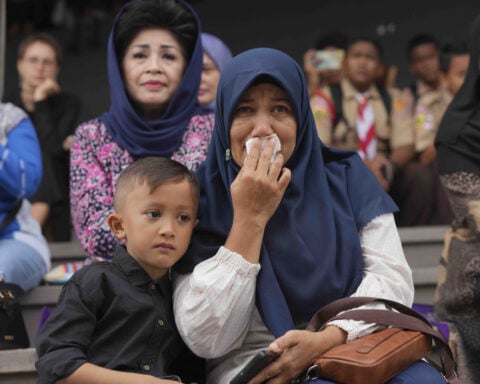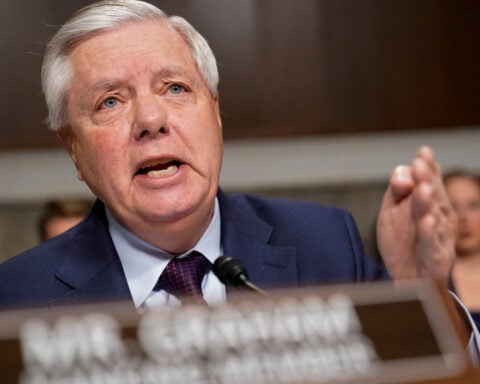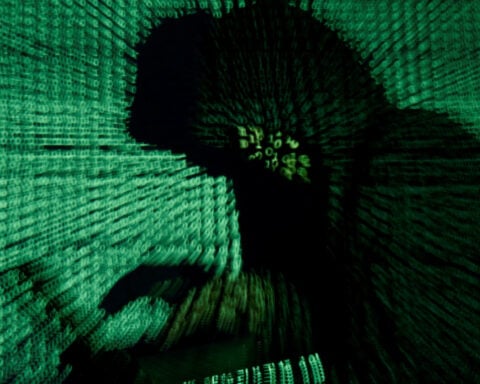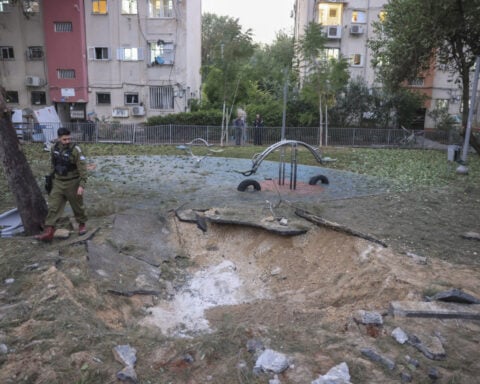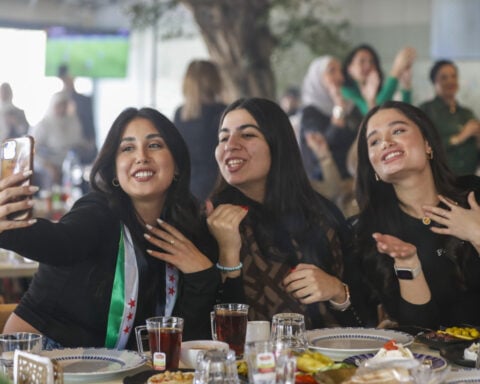Over the summer as Israel continued to bombard Gaza, representatives from 14 Palestinian factions, including the two main parties – Hamas and Fatah – met in China. Following the most inclusive talks in years, all the parties agreed to a future unity government and to hold national elections.
Such talk of “day after” governance may seem fanciful as the current war marks its first anniversary. The idea of holding Palestinian elections seems a long way off given the current destruction and humanitarian crisis, especially in the Gaza Strip. Meanwhile, any democratic process including Hamas – whose leadership Israeli forces have spent a year trying to eliminate following the the group’s attack of Oct. 7, 2023 – would be vehemently opposed by Israel. As such, it should come as little surprise that 72% of Palestinians recently polled said they saw no hope of the provisions agreed to in China being implemented any time soon.
But the alternative “day after” plan for Gaza reconstruction being pushed by the United States – “revitalizing” the Palestinian Authority, the Fatah-led body that semi-governs parts of the West Bank – also seems like a non-starter. Critics of that plan warn that a simple reshuffling of existing figures would further delegitimize the deeply unpopular authority.
As a scholar of Palestinian history and politics, I see talk of reforming existing bodies or propping up a unity government made up of the same players as missing a larger point: Palestinians are increasingly frustrated by their political representation; they want the opportunity to choose their own leaders.
Even before the attack of Oct. 7, surveys showed that Palestinians were dissatisfied with governance they viewed as corrupt and dysfunctional. And as the war drags into a second year, the latest polls indicate that support for Hamas has dropped moderately; yet support for its main rival, Fatah, has risen only slightly. More than a third of those polled do not support either party.
Divided leadership
Despite talk of a unity government, Palestinian leadership is as bitterly divided as it has been for decades.
Following a brief conflict in 2007, the Palestinian Authority split into two. The secular Fatah party, led by Mahmoud Abbas, controlled the authority in the West Bank, while its Islamist rival, Hamas, governed in Gaza.
Since then, Palestinian representatives have held over a dozen reconciliation talks to try to bridge the divide, the last taking place in Beijing in July 2024. While several of these meetings have yielded joint agreements, such as the recent “Beijing Declaration,” none have led to the different factions working more closely together.
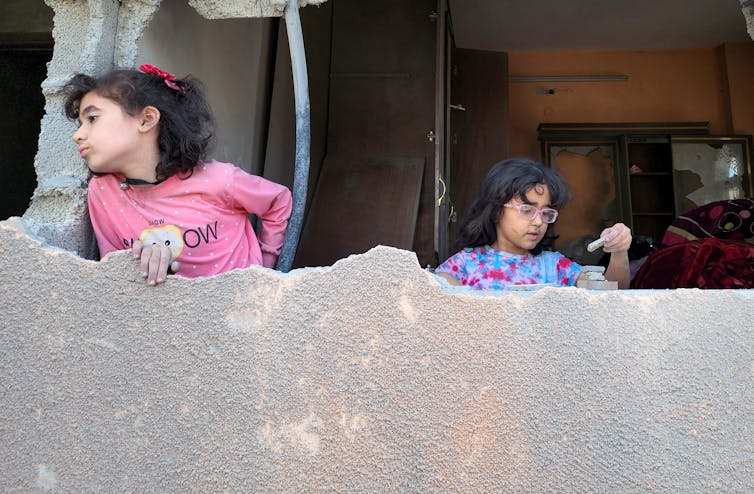
The current Palestinian Authority president, 88-year-old Abbas, is especially unpopular. First elected in 2005 to a four-year term, he unilaterally extended his term in 2009, declaring he would remain in office until the next election. But he has not allowed elections to be held since then. Summing up the views of many, analyst Khaled Elgindy described Abbas today as “an erratic and small-minded authoritarian with a virtually unbroken record of failure.”
That helps explain why, according to a September 2024 poll conducted by the Palestinian Center for Policy and Survey Research, 84% of Palestinians in the West Bank and Gaza Strip want Abbas to resign.
When asked about a hypothetical presidential election between the leaders of both Hamas and Fatah, 45% of Palestinians reported they would rather just sit out the election. The question had to be hypothetical – elections are not even on the horizon. In fact, Palestinians in the West Bank or Gaza have not voted in presidential or legislative elections since 2006. And three-quarters of Palestinians see no prospect of elections taking place any time soon.
Absence of elections
That pessimism among Palestinians over having a democratic say in how they are governed has grown in recent years. It has no doubt been knocked further by a year of relentless Israeli bombardment and internal political dysfunction.
A glimmer of hope for greater democratic representation had appeared in January 2021, when Abbas announced that legislative elections would be held later that year.
Many on the candidate lists then were third-party figures and independents. Young Palestinians were especially excited – half of all eligible voters would have been aged 18 to 33, and it would have been their first opportunity to chose leaders who could claim to speak for them.
But with less than one month before election day, Abbas postponed the vote indefinitely. While he blamed Israel for the postponement, other Palestinians also pointed to interference from Egypt and Jordan.
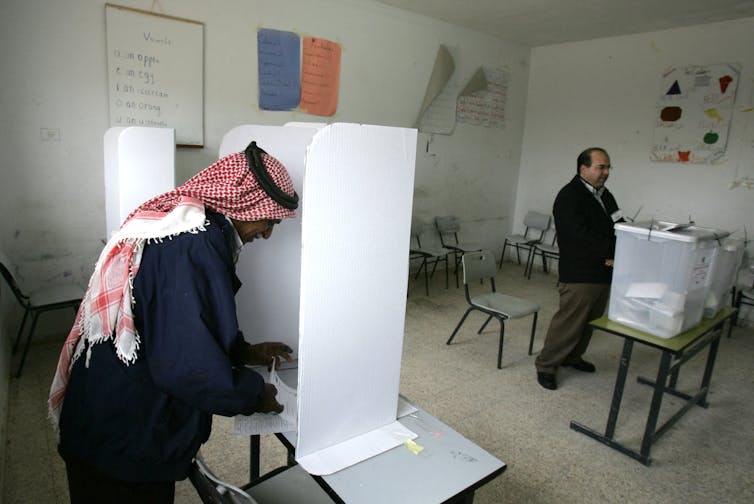
With no elections in sight, Palestinians have undertaken several grassroots initiatives to try to enact democratic reforms from the ground up.
For example, in November 2022, a Palestinian Popular Conference was held in several cities. It called for reforming Palestinian institutions to be more democratically representative of the 14 million Palestinians living around the world. Meetings were held in Gaza and Haifa, and Palestinians from around the world joined in person and virtually.
But Palestinian Authority forces in the West Bank violently cracked down on the gathering in Ramallah and detained several conference leaders. The harsh repression signaled to many that Abbas and the Palestinian Authority were scared of an alternative, democratically elected Palestinian leadership emerging.
Maintaining the occupation
Many Palestinians see Abbas and his government as a “puppet authority,” propped up by Israel and the United States.
Despite its name, the body does not have the “authority” that governments typically have. It cannot collect its own taxes, control its own border or protect its own citizens. Rather, Israel collects taxes in the West Bank and decides when – and whether – to hand them over to the Palestinian Authority. Israel has to authorize what enters and exits the West Bank and Gaza Strip.
And, as has been evident throughout the current war, the Israeli military has pretty much free rein to invade “Area A”, the parts of the West Bank that are supposed to be under full Palestinian Authority security control.
Yet Palestinians in the West Bank are not even able to express their opposition to these measures. In recent years, the Palestinian Authority has grown increasingly repressive, arresting a growing number of Palestinians on political grounds.
Moreover, in the year since the Oct. 7 attacks, the Palestinian Authority has allowed Israel to arrest and detain over 7,000 Palestinians in the West Bank. Many are held for months without charge or trial and subjected to widespread torture and sexual abuse, according to Israeli human rights group B'Tselem.
As such, the Palestinian Authority is viewed by many Palestinians as little more than a “subcontractor” of the Israeli occupation.
Looking ahead
So what does the the “day after” the conflict look like for Palestinians, and their hopes for democratic political representation?
The International Court of Justice’s recent ruling that Israel’s occupation is illegal and that settlers must withdraw from the West Bank has given added legitimacy to Palestinians’ demand to end the occupation once and for all.
But a future Palestinian government will only be credible if it represents the will of the people.
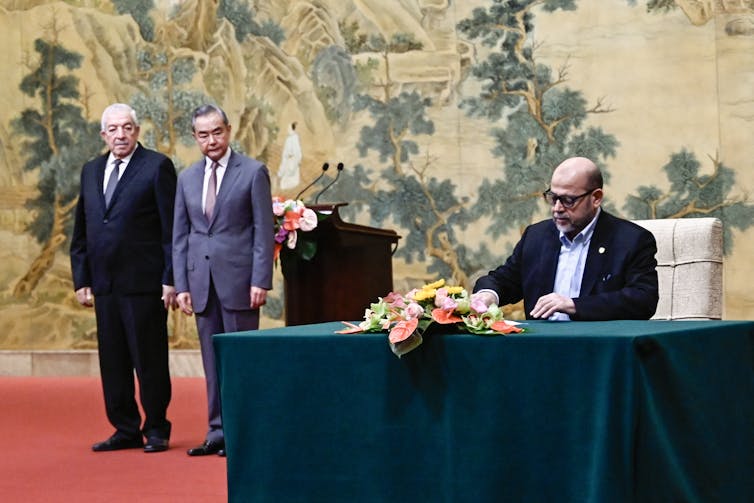
To be sure, holding Palestinian elections to achieve this aim would be difficult given the ongoing Israeli occupation and the widespread destruction in Gaza. But it is clear that elections are what Palestinians want. When elections were last touted in 2021, 93.3% of eligible voters registered – only to have their hopes later dashed.
At the reconciliation talks held in Beijing, all 14 Palestinian parties agreed to “prepare for the holding of general elections under the supervision of the Palestinian Central Elections Committee as soon as possible.”
While Israel, the U.S. and regional actors worry that elections could legitimize Hamas’ rule over the Gaza Strip, that would not necessarily be the case. The latest polls show that only 36% of respondents in Gaza said they would prefer that outcome.
For now, many Palestinians believe the first step should be the formation of a national reconciliation government that can negotiate reconstruction.
But to have any chance of succeeding, such a body would need to be Palestinian-led. A government consisting of the same old actors forced upon Palestinians by the U.S. or Israel would suffer from crippling legitimacy problems.
One thing is certain: The death and destruction of the past year have shown that the old approaches to Palestinian politics have not worked. Perhaps it is time for a new approach, one that centers Palestinian representation.

Maha Nassar was a 2022 Palestinian non-resident fellow at the Foundation for Middle East Peace and currently serves on its board of directors.
Source: The Conversation

 How to save a fentanyl victim: Key facts about naloxone
How to save a fentanyl victim: Key facts about naloxone
 Eight convicted in France over murder of teacher who showed Prophet caricature
Eight convicted in France over murder of teacher who showed Prophet caricature
 Death toll from German Christmas market car-ramming rises to four, Bild reports
Death toll from German Christmas market car-ramming rises to four, Bild reports
 France's Mayotte struggles to recover as cyclone overwhelms hospitals
France's Mayotte struggles to recover as cyclone overwhelms hospitals
 Russia's UK embassy denounces G7 loans to Ukraine as 'fraudulent scheme'
Russia's UK embassy denounces G7 loans to Ukraine as 'fraudulent scheme'
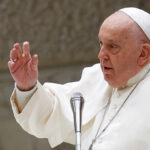 Pope calls Gaza airstrikes 'cruelty' after Israeli minister's criticism
Pope calls Gaza airstrikes 'cruelty' after Israeli minister's criticism
 Retailer Party City files for bankruptcy, will wind down 700 stores
Retailer Party City files for bankruptcy, will wind down 700 stores
 Soccer's top players have had enough, as FIFA's new super-sized tournament sparks a revolt
Soccer's top players have had enough, as FIFA's new super-sized tournament sparks a revolt
 Lindsey Vonn finishes 14th in a super-G to mark her return to World Cup skiing at age 40
Lindsey Vonn finishes 14th in a super-G to mark her return to World Cup skiing at age 40
 Santa and Mrs. Claus use military transports to bring Christmas to an Alaska Native village
Santa and Mrs. Claus use military transports to bring Christmas to an Alaska Native village
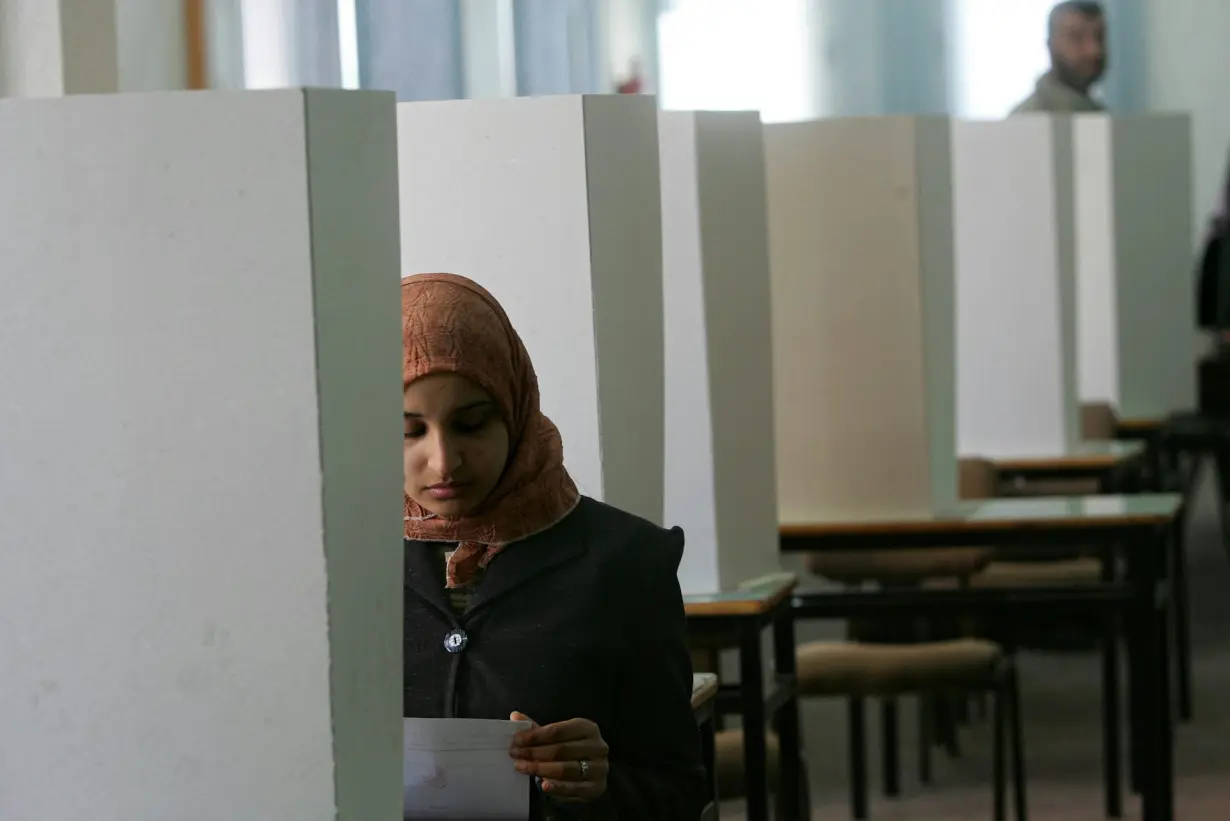 A Palestinian university student casts a ballot in Gaza City in 2006.
A Palestinian university student casts a ballot in Gaza City in 2006.
